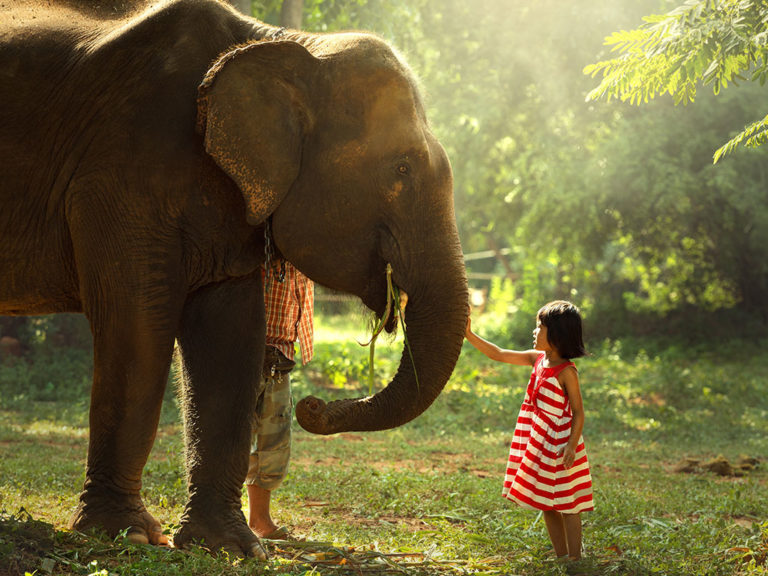Adult Children Of Alcoholics Are Molded For Dysfunction.
What does that mean? It means that the elephant in our world is crisis, and all reality is denied from the moment we’re born. Every day is life in the circus. Recovery slogans and sayings abound, comparing addiction to a three-ring circus. These analogies give many adult children of alcoholics and addicts the words to explain their chaotic upbringing.
Why Do I Keep Going To The Children Of Alcoholics Circus
A few weeks ago I came across this meme on social media:
Don’t blame a clown for acting like a clown. Ask yourself why you keep going to the circus.
My family of origin is a circus. One or more of them are always in a crisis, and for years, I kept going back to watch their circus unfold. I had extreme anxiety because of my family’s addiction. I even moved out of state, yet I kept running back. Why? I was afraid of being punished if I don’t.
According to circus lore, baby elephants are trained by tying a rope around their neck and then tying them to a pole. The babies struggle to break free without success. Eventually, they exhaust themselves and quietly submit. This is repeated over and over until the poor babies believe that the rope, not the pole is what squelches their freedom.
Adult children of alcoholics and the power of punishment
In my family of origin, my parents were both the gigantic proverbial elephants in the room. One parent was a “dry drunk” and the other was a codependent. Both parents were loud and frightening. They used anger, hatred, punishment and at times abuse to control me.
Like the baby circus elephants, I quickly learned to submit to my fear of punishment. Even now as a grown up, I still feel the pull to revert back to my childhood role. My innate response is to submit to ALL others as if they actually had power over me and return to an invisible prison.
Breaking free from the fear
In 1978, Tony A., who is considered to be the primary founder of Adult Children of Alcoholics, wrote The Laundry List, 14 characteristics or common behaviors that detail the adult child personality. Tony A.’s original list (numbers 1 and 3) explain the invisible prison of fear:
- We became isolated and afraid of people and authority figures.
- We are frightened by angry people and any personal criticism.
How Children Of Alcoholics Heal
Wouldn’t it be lovely if I could simply say, “I’m never going to be afraid again.” Sadly, my fear of punishment is deeply rooted. To heal, I too need recovery. In numbers 4 and 10 of The Flip Side of The Other Laundry List, we find these steps to healing:
- We accept and comfort the isolated and hurt inner child we have abandoned and disavowed and thereby end the need to act out our fears of enmeshment and abandonment with other people.
- We accept we were traumatized in childhood and lost the ability to feel. Using the 12 Steps as a program of recovery we regain the ability to feel and remember and become whole human beings who are happy, joyous and free.
Groups like ACA, Al-Anon, Alateen, Nar-Anon, CoDA, and Celebrate Recovery all help guide family members though recovery.
Children Of Alcoholics: Freedom Is Worth It
Recovery wasn’t the answer I wanted to hear. I tried everything from anxiety and depression meds to family counseling. Those interventions on their own weren’t strong enough to help me break out. In fact, I was still unaware of my invisible prison. Once I finally ventured into a 12 Step meeting, everything clicked. I became AWARE of how my parent’s addiction affected me. Slowly, with the help of a Sponsor and accountability partners, I ACCEPTED my hurtful upbringing. Eventually, I was ready to take ACTION by setting boundaries and protecting myself.
I am one of the lucky ones. I’m still in contact with my family. I still love them and care deeply for them, but I put my well being first. I have strong boundaries to keep me safe when the elephants get rattled. And they do get rattled.
More Articles To Read
9 Common Mental Health Challenges
Chronic Pain Management: What’s Best
Mindfulness-Based Interventions
Stop Suffering: 8 Tips For Overcoming Depression
Children Of Alcoholics Search For Normal





















